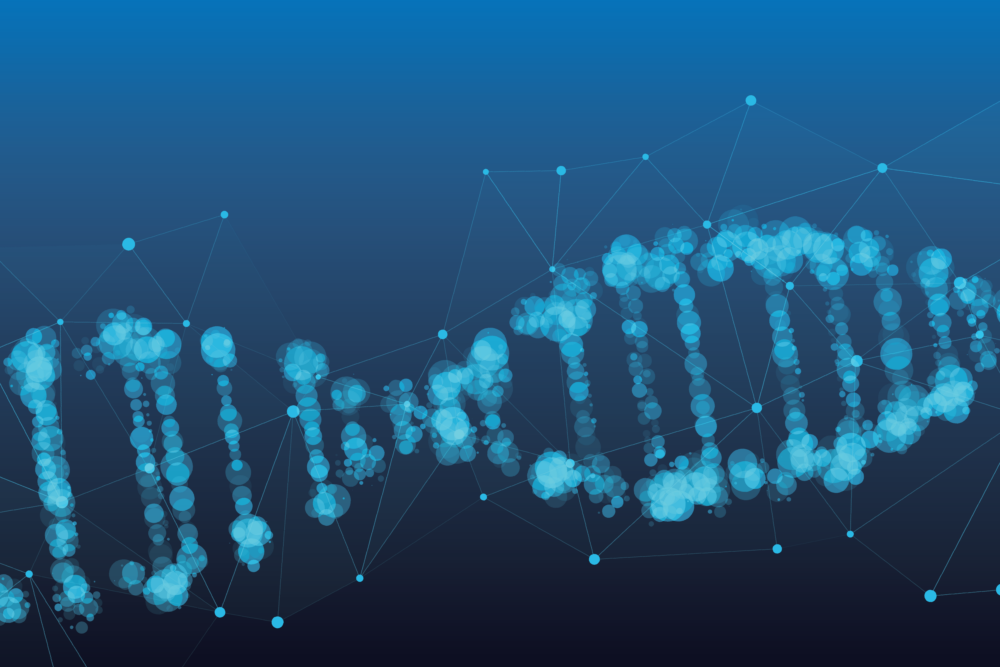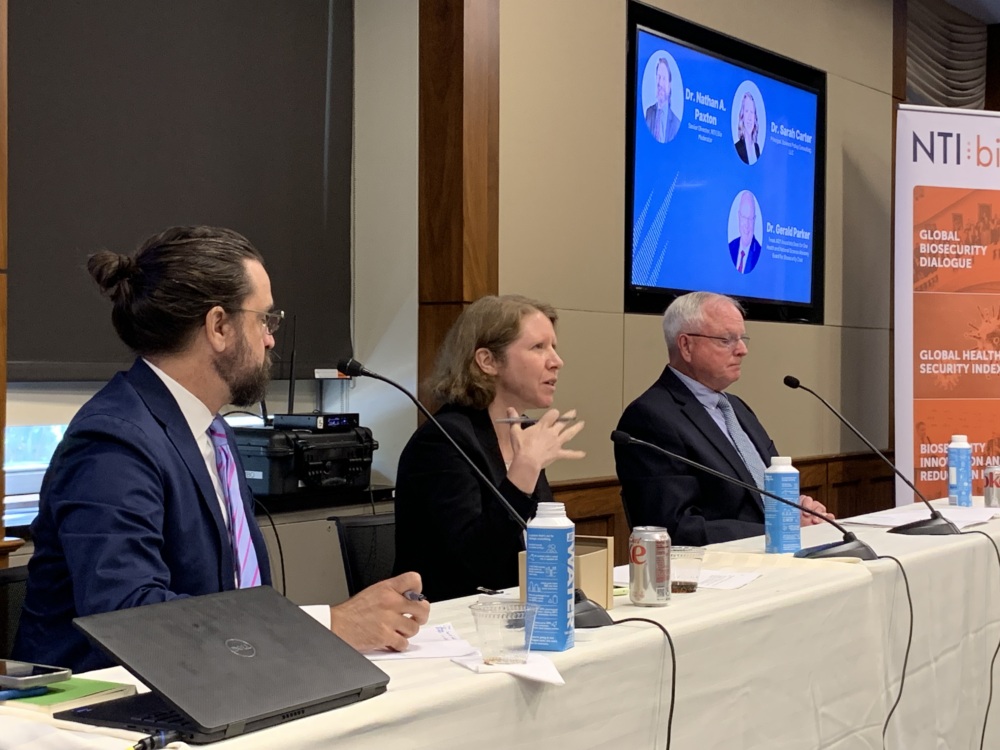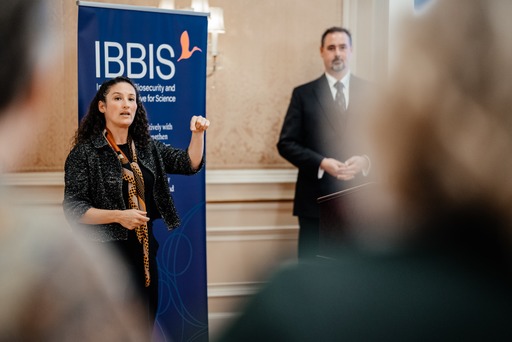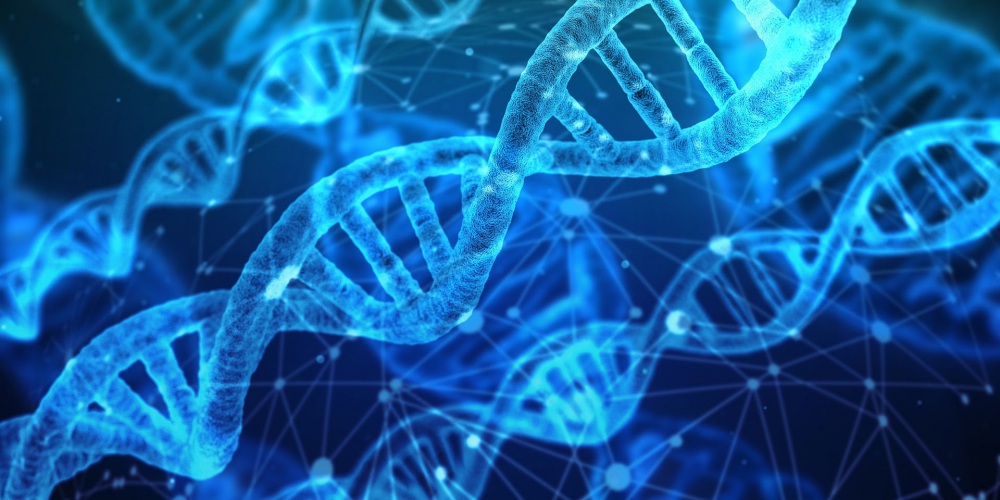Advances in bioscience and biotechnology are vital to fighting disease, protecting the environment, and promoting economic growth and development. However, these innovations also exacerbate risks of deliberate or accidental misuse. New technologies making it easier to synthesize DNA and edit genes hold tremendous promise but could also enable the development of dangerous pathogens in the wrong hands, potentially manufacturing the next pandemic. On July 25, NTI | bio hosted an event on Capitol Hill to discuss how Congress and other key decisionmakers can take action to provide necessary oversight to safeguard these technologies, without stifling innovation in the field.
The event, “Encouraging Congressional Action on Dual-Use Bioscience Research of Concern,” featured Dr. Gerald “Gerry” Parker, associate dean for Global One Health of Texas A&M University and chair of the National Science Advisory Board for Biosecurity (NSABB); and Dr. Sarah Carter, principal at Science Policy Consulting, LLC. Drs. Parker and Carter discussed issues in emerging bioscience and biotechnology, including biosecurity risks posed by artificial intelligence (AI)-enabled bio-design tools. NTI | bio Senior Director Dr. Nathan Paxton moderated the discussion.
Dr. Carter gave an overview of pathogen research oversight, as well as oversight of technologies that can be applied to pathogen research. Such tools and capabilities include DNA synthesis technologies, genome editing tools, laboratory robotics, AI-designed tools, and language learning models like ChatGPT. Anyone can order synthetic DNA, but screening DNA synthesis orders is not legally required by any national government – leaving it up to providers to ensure that the building blocks of dangerous pathogens does not go to people who do not have legitimate uses for it. However, safeguards for DNA synthesis technology have not kept pace with growing global demand for this service and declining costs. NTI is developing resources, such as the Common Mechanism for DNA Synthesis Screening, to make that voluntary oversight for DNA synthesis providers easier.
Dr. Parker provided an overview of several decades of evolving attempts to govern dual-use research of concern (DURC) in the life sciences and a historical background of the NSABB. Parker stressed the need to urgently implement the NSABB January 2023 recommendations on DURC and provide oversight to ensure their implementation. Dual use emerging technologies, including AI, are evolving at a pace that exceeds our ability to provide effective biosafety and biosecurity governance and oversight without impeding innovation, Parker said.
Congress can also provide clear guidelines, incentives, and regulations for benchtop DNA synthesis device manufacturers; support the development of biosecurity standards for use by funders, who are well-positioned to incentivize the incorporation of biosecurity measures; and require biosecurity practices through funding conditions, legislation, and directing regulation and guidance.
NTI | bio plans to host another event on Capitol Hill this fall. Subscribe to NTI’s newsletter to learn more about upcoming events.





